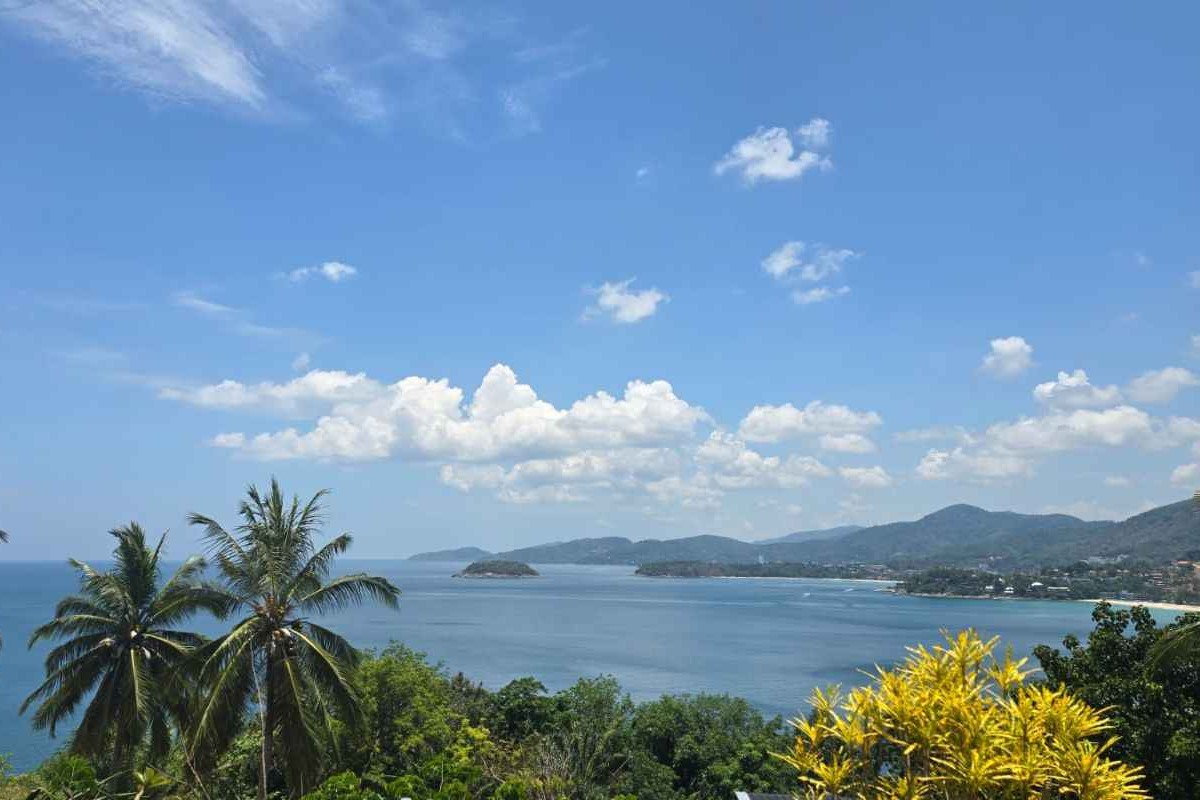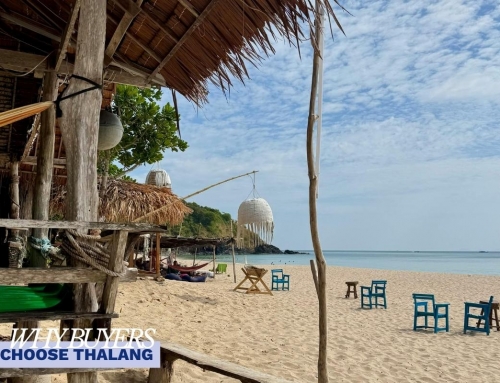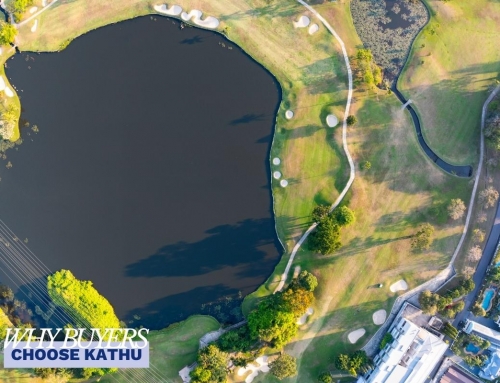Compared with many other holiday destinations in the world, property prices in Phuket still remain competitive. For anyone investing in real estate opportunities, Phuket rivals almost every other comparable market around the globe.
Everyone is always told the secret to investing is “buy low, sell high.” When prices are already low to begin with, it is much easier to follow that maxim.
For deeper source listings and current inventory, see our Phuket Property for Sale, Phuket Condos for Sale, and Phuket Villas for Sale pages.
Thailand’s economy continues to develop and, as growth maintains its forward path, broad consumer prices will undoubtedly begin to approach those in some of the world’s more established economies. It is, therefore, inevitable that any widespread increase in prices will also include the real estate sector.
However, as things stand on the island today, the value for money, particularly in the market for Phuket’s freehold condominiums, makes this an extremely appealing place to invest.
In fact, when comparing prices in Phuket compared to elsewhere, other markets come off looking a bit expensive, even extortionate. Popular vacation spots like Greece, Portugal, or Spain are not what they used to be, with prices today considerably higher than a few short years ago.
More importantly, these large real estate markets have experienced notorious booms and busts over the years, so it would not be unreasonable to call into question the sustainability of the prices in those markets today.
Spain is one good example. The last 30 years in Spain has seen a remarkable transformation. Even discounting the impact of the country now using the Euro, property prices there have risen to levels on par with many other western European countries. Nowhere is this more evident than on the Costa del Sol, the Canaries, or Balearic Islands, where Brits, Germans and Scandinavians once considered the houses and villas to be cheap compared to what they were used to at home.
The pace of development today in Phuket is not unlike what Spain experienced in the mid-to-late 1970s, and the expansion of the real estate market continues unabated.
Likewise, it is not unrealistic to assume that the tourist industry in Thailand could one day be on par with that of Spain. If that should happen, the relatively fledgling property market in Phuket (now rapidly developing with consistently rising prices) must be viewed as having exceptional upside potential.
What About Additional Fees, Such as Government Taxes?
Buying real estate anywhere typically involves significant taxes (e.g. VAT, Stamp Duties) on the initial purchase alone.
Using Spain as the example again, it has always been renowned for its high government taxes when purchasing property there. In addition to normal conveyance fees, a buyer is also subjected to a property transfer tax, which ranges between 8% to 11%. And although transfer taxes are waived on new builds in Spain, the property is still subjected to 10% VAT (referred to “IVA” in Spain).
But things may get a lot worse for non-EU citizens contemplating a move to Spain. In January of 2025, Spain announced its plan to impose a property tax of 100% if the buyer was not from a country within the European Union.
Although this move may be to curtail the ever increasing property prices, it is most definitely a blow to the Russians, Chinese, and other nationalities who may have been planning their future in the country. This is especially harsh for British buyers (now that the UK has left the EU), and who have, historically, been the predominant buyers of property in the country.
Buying a property in many other countries may also come with high up front taxes. Hong Kong and Singapore are both renowned as low income tax countries, but property taxes can be as high as 15% of the purchase price.

Considerably Lower Government Fees and Taxes in Phuket
In Phuket, it is not just the cost of property that is lower. The additional costs associated with buying property, are also extremely low in comparison to many other countries. Taxes on purchase, sale, or even rental income are all generally much lower than in comparable popular destinations.
It could even be said that the fees in Thailand are negligible by comparison. Even when purchasing a brand new property on a new project, the fees are typically split 50/50 with the developer, with a maximum cost to the buyer of 3.5% of the purchase price. If the buyer decides to lease some land or a villa for 30 years, then the registration fee for the leasehold is only 1%.
When an owner is preparing to sell the property, in some jurisdictions, the seller could see over half of the appreciation on the home gobbled up as capital gains taxes (CGT). Thailand does have CGT, but the already-reasonable tax rates drop even further the longer someone has owned their home.
Getting That Extra “Bang for your Baht” in Phuket. The Cost of Living is Still Cheap Too!!
Although this article focuses mainly on the underlying cost of property and the taxes and fees associated with each purchase, there is also another factor driving sales in Phuket.
Thanks to its gastronomic delights (some of the best cuisine in the world), its climate, gorgeous beaches, and remarkable culture, Phuket has no trouble attracting buyers of real estate. But it’s no secret that a lot of people are drawn to the island because of just how cheap it is to live. For anyone looking at property in Phuket, especially as a new home, the cost of living is likely to be a major consideration.
It is true that certain goods are more expensive in Phuket than in other parts of Thailand, but relatively speaking, the cost of living remains quite low. In fact, you can holiday in style and also live quite comfortably for a fraction of what things now cost in Europe.
9 Reasons Why Phuket’s Property Market Remains So Popular Today:
- Prices in Phuket remain low compared to other holiday destinations
- Because prices still remain relatively low, the potential upside for capital appreciation is greater
- The Scarcity Principle: Phuket is an island, so developable land is in limited supply. This especially true on the west coast, which is famous for its beaches and sunsets
- Because Phuket is a “cash only” market it does not experience the same booms and busts as most international markets
- A thriving tourist sector means excellent rental potential for property investors. The rental market also remains active all year round
- Conveyance costs and taxes on a property purchase, and the sale, are considerably lower in Thailand than in many other countries.
- Phuket is a tropical island which is easily accessible by air, sea, or even land. (Sarasin Bridge, connecting Phuket to the mainland, is only 660 metres long.)
- The infrastructure on Phuket is continually being improved, in line with the rising popularity of the island
- Holiday destinations are known for being expensive places to live. The cost of living in Phuket, by contrast, is relatively lower, and significantly lower should anyone decide to “live locally”
Phuket Property Prices Remain an Attractive Investment in 2025
Compared to other global resort destinations, Phuket’s real estate market remains competitively priced. Whether you’re considering a luxury sea view villa, a modern condominium, or a more affordable investment property, Phuket offers exceptional value. With property prices in 2025 still lower than major cities in Asia and comparable beach destinations, buyers continue to see strong potential in Phuket’s growing real estate market.
Plan Your 2025 Budget with Confidence
Phuket pricing in 2025 depends on demand, financing options, and achievable returns. These guides will help you run the numbers before you commit:
Disclaimer: The information contained in this article is provided for general informational purposes only and does not constitute legal, financial, or investment advice. While every effort has been made to ensure accuracy at the time of publication, property laws and regulations in Thailand are subject to change. Readers should always seek independent legal advice from a qualified Thai lawyer before making any property-related decision or transaction.





Social Contact